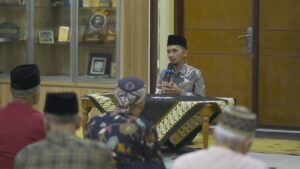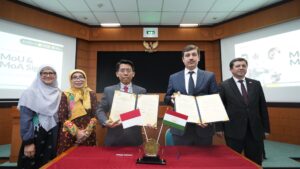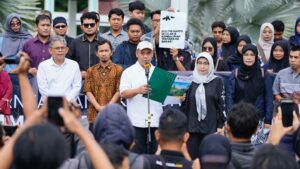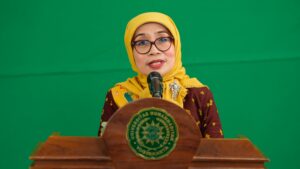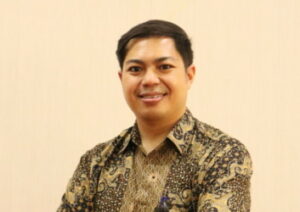Many people still apply teacher-centered learning as their learning method. The method is no longer effective to be implemented in higher education. The teaching and learning method, which is considered as the key success of teaching and learning process is student-centered learning that the teacher provides a few materials, and students have to actively develop the materials.
The aforementioned notions were the main topic discussed in a-week Academic Teaching Excellence (ATE) organized by Universitas Muhammadiyah Yogyakarta (UMY) for 100 lecturers of UMY divided into several groups.
In an interview on Tuesday (5/4), a trainer of ATE of British Council Indonesia Foundation, Andrew Hunt stated that he appreciated the lecturers who were enthusiastic about joining the training. He said that, even though UMY’s lecturers are quite busy, they can spend their time joining the training, “They are energetic and enthusiastic, and this is a good experience for me to work with them,” Andrew expressed. He told that he has become the ATE trainer at British Council for five years and the ATE is the first training by British Council in Indonesia.
It was only a-week training so that only a few experiences and issues could be discusses. Nevertheless, during the training, Andre focused on the lecturers’ experiences of using English as a medium instruction. “We shared ideas, reflected their teaching, and talked about challenges of teaching using English as a medium instruction,” Andrew said.
Andrew expected that the lecturers would not immediately shift their teaching methods since changing methods need time. “I wish that the lecturers could be more confident and could try something new at class. the change can be performed step by step so that it will benefit students next month or even next year,” he hoped.
Andrew argued that using English as a medium instruction emphasizes subject content delivery and students’ understanding instead of students’ accurate grammar and pronunciation. Thus, great teaching is to provide explanation in English slowly and to employ supporting methods like using pictures or gestures.
Besides, one of the training participants, Dr. Dyah Mutiarin, M.Si conveyed that the training is valuable for lecturers to manage class, to enhance understanding of teaching methods, and to interact well with students. “The students have distinctive English ability and in this training we learn strategies to confront the issues,” Dr. Dyah told.
She informed that the training also discussed how to encourage students to be more active and not to get bored at class. She stated that Andrew showed active learning simulation and how to deliver adequately hard topics. “For instance, it can be accomplished by discussion that students will have various insights and the lecturer should conclude so that they will gain clear comprehension,” Dr. Dyah mentioned.
Most people still thought that lecturers are the only one source at class. “In fact, students are the source at class as well. Although, lecturers’ knowledge may be greater than students’, the lecturers should appreciate students’ views. I also learn how to teach well and appreciate the students,” Dr. Dyah ended.

